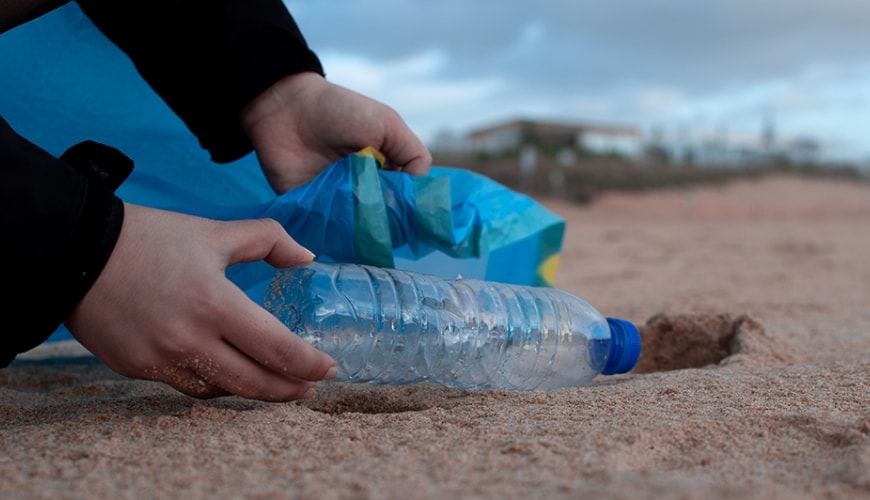Since the industrial revolution, atmospheric carbon dioxide (CO2) and other greenhouse gasses have risen exponentially as humans burn fossil fuels with increasing efficiency. Models have estimated that in the 800,000 years prior to 1950, CO2 levels rarely reached concentrations of 300 parts per million (ppm), whereas today atmospheric CO2 is well over 400ppm.1
What does this mean in plain language? Well, since the Industrial Revolution we have become good at pumping CO2 into the atmosphere, and it’s become extremely problematic for our environment. Increased CO2 and other greenhouse gasses in the atmosphere have led to a 1.2°C increase in global temperature – it may not seem like much, but even this small increase has led to changes in the home ranges of some animals, dramatic loss of artic ice, fluctuations in local weather patterns, increased natural disasters, and much more.
To slow the rapid ascent of CO2 concentrations in the atmosphere, we need to act fast. Reducing the fossil fuel burning on a massive scale is ultimately what needs to be done but reaching net zero emissions means making small lifestyle changes as well.
1. Refuse
Refuse single use plastic products. Not only does plastic clog our waterways, threaten marine life, and pollute the environment with harmful chemicals, it also releases a large amount of carbon into our atmosphere. Every part of the plastic lifecycle from extraction to distribution results in carbon emissions, and current emissions from plastic are equivalent to that of 189 500-megawatt coal-fired plants.2,3
The simplest solution for you and I? Stop using single-use plastic. Reducing the use of plastics that have a short lifespan, like plastic straws, utensils, and cups, will ultimately reduce the demand in production.
Get a Reusable Water Bottle
One million plastic bottles are sold every minute, and the average person uses 156 plastic bottles per year. Cut the number of bottles your household uses by purchasing a reusable bottle and always bringing it with you. Plus, you’ll stay hydrated!
Choose Reusable Shopping Bags – and Bring Them
All sorts of different items can be used instead of plastic bags. Our team uses a variety of cloth shopping bags, laundry baskets (easier carrying!) and paper when absolutely necessary. Finding it hard to remember your shopping bags? Refuse the plastic bags anyway – if you must carry several items out of the grocery store in your arms, you will certainly remember the bags next time!
Look for Beeswax Wraps or Silicon Bags for Storage
Beeswax wraps are a great replacement for clingwrap, and usually last for 3-4 months. Silicon bags must be cleaned after every use, but many are dishwasher safe and are a great alternative to plastic storage bags!
2. Reduce
About 20% of greenhouse gasses produced by the US come from powering our homes. Making small adjustments to your energy usage, such as keeping your home 2°F warmer in the summer or 2°F cooler in the winter, can reduce your annual CO2 emissions by a couple thousand pounds.4,5
Reduce Your Energy at Home
If you are a Florida Resident using FPL, use their interactive tool to assess your home’s energy usage, and follow their suggestions for reduction. Maybe it’s time to upgrade your old inefficient appliances for some shiny new carbon-reducing technology, or maybe you just need to turn off the lights more often.
Consider Solar & Other Renewable Energy
Look into options for renewable energy sources that will suit your geographic location. Because of the sun exposure in South Florida, there are even options to get solar panels installed on your home at no cost – it doesn’t get easier than that!
3. Act
Changes in policy can not only slow the effects of climate change, but also make our society more resilient to environmental changes. Fossil fuels such as coal and natural gas are limited and making the switch to renewable sources will be better for the economy in addition to the earth in the long term. Acknowledging the changing coastlines, shifting temperatures, dwindling natural resources is important so that we can adequately prepare for the future instead of hanging onto the past. 6
Voice Support for Climate-Forward Actions in Your Community
Want to really make a difference? Do the research, learn about the issues affecting your area, and connect with local lawmakers to voice your support for the environment. Your voice matters!
Support Funding for Science
Without science and innovation, we do not understand the natural world that is needed to seamlessly adapt and prevent further damage to the earth. The National Science Foundation for the Future Act would be increasing funding for research relating to climate change, natural disasters, and other environmental issues. Write to your local senators to voice your support.
At the end of the day, every action matters. Thank you for joining us in the battle to save our planet!




